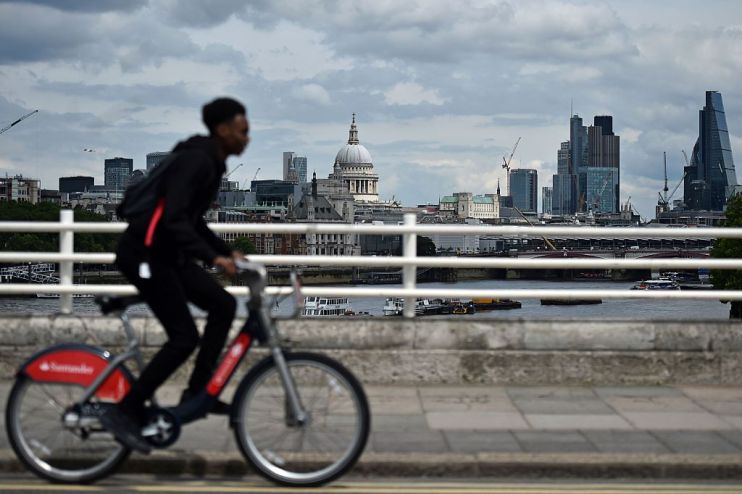Put sharing at the heart of the post-Covid economy

As we begin to emerge from lockdown, it’s not hard to see the damage that Covid-19 has done to small businesses on the high-street.
What’s perhaps less obvious is the impact it has had on digital SMEs, particularly those that make up Britain’s vibrant sharing economy.
At the beginning of 2020, an Ipsos Mori poll revealed that 48 per cent of people in the UK had swapped, rented or shared something through the sharing economy.
Before the pandemic hit this sector was predicted to be worth £1.6bn to the UK by 2025, and was employing over five million people across the country. Its rapid boom in recent years had given many hope for a more productive and sustainable future, making the most efficient use of resources.
But now it is struggling. Businesses founded on sharing or connecting that were thriving months ago are now in trouble.
Take, for example, the venue hire firm HeadBox. Lockdown saw bookings fall sharply, and the company’s revenue dropped by 50 per cent. For Liftshare, a carsharing platform, the travel restrictions caused usage to nosedive.
My own business Patchwork allows people to collectively fund gifts and experiences. We have also been hit hard, with events cancelled and weddings postponed.
This sector is agile, energetic, and innovative. It is telling that, even in this troubling business environment, many companies have continued to trade, adapt, and give back to communities. From contactless collection services to virtual events, from matching rough sleepers to available rooms to fundraising for local charities, these businesses have kept going while the world around them has changed.
As our economy reawakens, it’s more important than ever that we support these sharing economy businesses, so that they can continue to be at the forefront of innovation.
There were many lessons to learn from the financial crisis and the way we came out of it, with measures that resulted in fewer businesses and fewer jobs. This cannot be allowed to happen again.
So what can we do?
The first thing the government must do is provide the clarity on when and how key sectors of the economy — from food to transport — can operate again. Sharing economy companies need to be clear on how the government’s social distancing rules and safety measures will evolve, so they can make sure they have appropriate plans and policies in place for restarting. The smallest and most agile businesses are best able to adapt, but they are also the ones most in need of certainty.
Second, we should take the opportunity to further invest in digital skills and connectivity across the UK. We’ve seen how crucial technology has been to connect us during this crisis, bringing us together in the virtual sphere while physical interaction has been impossible. That need will not evaporate. Ensuring that businesses have access to superfast broadband and the skills to scale up their digital offering is critical to recovery.
Third, as the nation begins to get moving again, this is the moment to rethink transport options and invest more in car and bike sharing schemes. Emergency Covid plans for city-wide cycleways should be accompanied by the expansion of bike sharing schemes beyond city centres. Improved infrastructure and further investment to support car sharing businesses would also help us avoid a short-term increase in road traffic.
Finally, while we’re busy tackling the health crisis, we mustn’t forget about the climate emergency. The government must target its support towards businesses that reduce waste — from a VAT cut for rental services and those selling second-hand products, to dedicated funding for businesses that prove they are helping to decrease our environmental impact.
If we are to reach our net zero goals, we’ll need sustainable businesses to help us get there. Let’s not go back to business as usual. Let’s do better.
Now is the time to invest in the transition to an economy that enables us to generate prosperity while connecting communities and protecting our planet.
Main image credit: Getty